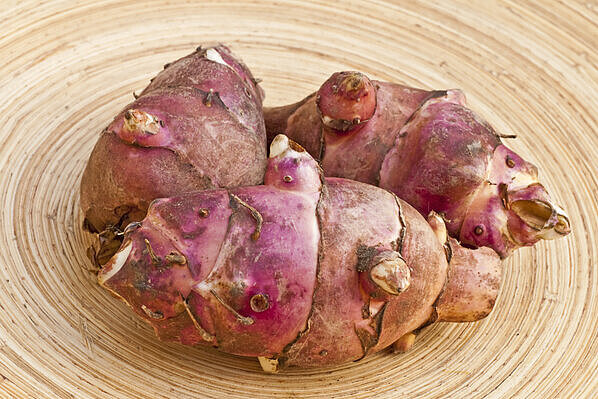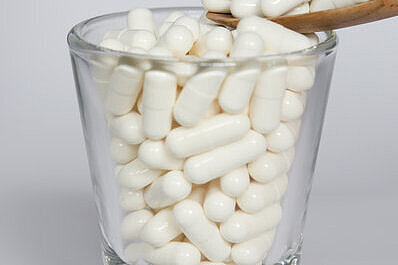Mannan oligosaccharides

Mannan oligosaccharides are indigestible carbohydrates obtained from the cell wall of yeasts. They belong to the so-called prebiotics, which can have a positive influence on your dog's intestinal flora. In this article, you will find out what MOS can do for your dog and what you should look out for.
What are prebiotics and how do they differ from probiotics?
Prebiotics are food components that pass through the small intestine undigested and are fermented in the large intestine by the bacteria living there. As a result, they promote the growth and activity of beneficial bacteria that are important for your dog's digestion and immune system. Probiotics, on the other hand, are live bacteria that enter the intestine directly and can supplement or change the intestinal flora there.
How do MOS affect your dog's health?
MOS have several benefits for your dog's health. On the one hand, they serve as food for the good bacteria in the intestine, increasing their numbers and strengthening the intestinal barrier. Secondly, they bind to harmful bacteria such as salmonella or E. coli, preventing them from adhering to the intestinal wall and causing inflammation or diarrhea. MOS can also stimulate your dog's immune system by stimulating the production of antibodies and immune cells.
When and how should you feed your dog MOS?
MOS can help your dog if he has digestive problems such as diarrhea, bloating or constipation. They can also be used preventively to maintain or improve intestinal health. MOS are found in some dog foods or supplements. You should make sure that the MOS come from a high-quality source and are present in sufficient quantities.
The recommended daily dose is around 0.1 to 0.2 grams per kilogram of your dog's body weight. You can mix the MOS with your dog's food or water or give it as a treat.
Are there any disadvantages or risks when feeding MOS?
MOS are generally well tolerated and have no known side effects for dogs. However, you should make sure that your dog does not get too much MOS, as this can lead to overstimulation of the immune system or hyperacidity of the intestines. In addition, you should not feed MOS together with antibiotics, as these can impair or cancel out the effect of the MOS.
Prebiotics are indigestible food components that are fermented by bacteria in the large intestine and promote the growth of beneficial bacteria. Probiotics are live bacteria that enter the intestine directly and supplement the intestinal flora. Mannan-oligosaccharides (MOS) support the intestinal health of dogs by serving as food for good bacteria, binding harmful bacteria and stimulating the immune system. They can help with digestive problems and can be used preventively. The recommended daily dose is about 0.1 to 0.2 grams per kilogram of the dog's body weight. There are no known side effects, but overdosing and simultaneous administration with antibiotics should be avoided.
Properties 1
Are you looking for other ingredients with a specific property?
Just click on them to find more.
If you notice any signs of hypersensitivity or poisoning in your dog, you should see your vet immediately. We are not a substitute for a vet, but we try to be as accurate as possible. Every dog reacts differently and we recommend you get a second opinion or consult your vet if in doubt.
Stay healthy and take good care of your four-legged friend!😊
Similar to Mannan oligosaccharides
Feeding FOS can have various health benefits for dogs: They promote the growth of good gut bacteria and inhibit the growth of harmful bacteria. This reduces the formation of toxins in the...
Galactooligosaccharides are prebiotic fibers derived from lactose. They consist of short-chain carbohydrates and are known to promote the growth and activity of beneficial intestinal bacteria such...
Inulin is a carbohydrate that consists of several fructose molecules. It is used by plants as an energy store and is found, for example, in chicory, artichokes, Jerusalem artichokes and dandelions....
Beta-glucans are polysaccharides, i.e. long chains of glucose units that are linked together by special bonds. There are different types of beta-glucans, depending on how the glucose units are...



